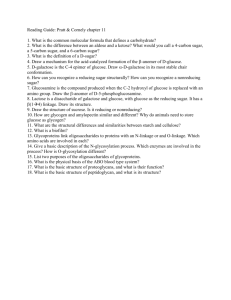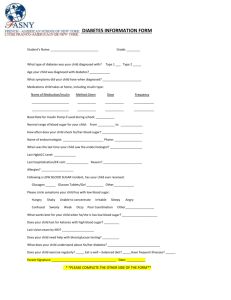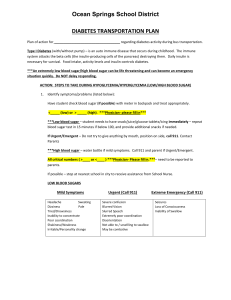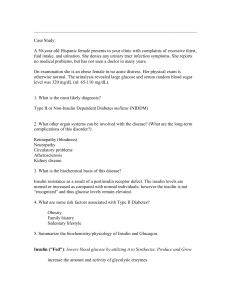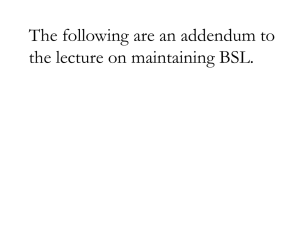Blood Sugar Issues - Merritt Wellness Center
advertisement
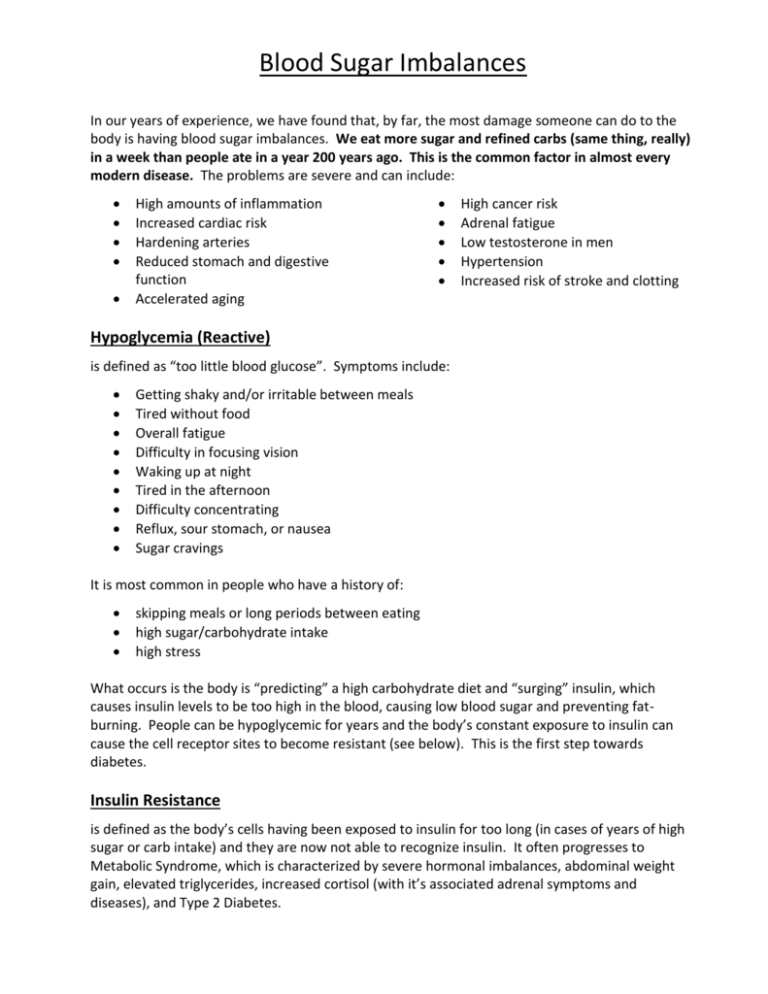
Blood Sugar Imbalances In our years of experience, we have found that, by far, the most damage someone can do to the body is having blood sugar imbalances. We eat more sugar and refined carbs (same thing, really) in a week than people ate in a year 200 years ago. This is the common factor in almost every modern disease. The problems are severe and can include: High amounts of inflammation Increased cardiac risk Hardening arteries Reduced stomach and digestive function Accelerated aging High cancer risk Adrenal fatigue Low testosterone in men Hypertension Increased risk of stroke and clotting Hypoglycemia (Reactive) is defined as “too little blood glucose”. Symptoms include: Getting shaky and/or irritable between meals Tired without food Overall fatigue Difficulty in focusing vision Waking up at night Tired in the afternoon Difficulty concentrating Reflux, sour stomach, or nausea Sugar cravings It is most common in people who have a history of: skipping meals or long periods between eating high sugar/carbohydrate intake high stress What occurs is the body is “predicting” a high carbohydrate diet and “surging” insulin, which causes insulin levels to be too high in the blood, causing low blood sugar and preventing fatburning. People can be hypoglycemic for years and the body’s constant exposure to insulin can cause the cell receptor sites to become resistant (see below). This is the first step towards diabetes. Insulin Resistance is defined as the body’s cells having been exposed to insulin for too long (in cases of years of high sugar or carb intake) and they are now not able to recognize insulin. It often progresses to Metabolic Syndrome, which is characterized by severe hormonal imbalances, abdominal weight gain, elevated triglycerides, increased cortisol (with it’s associated adrenal symptoms and diseases), and Type 2 Diabetes. Symptoms include: Sleepiness after meals Mental fogginess and fatigue Intestinal bloating and gas Increased blood pressure Increased blood triglycerides Depression Thinning hair in women Abdominal weight gain Difficulty losing weight Many of the symptoms listed above for hypoglycemia It is diagnosed using a fasting glucose value from a blood test, as well as possibly an A1C glucose blood test, which measures glucose levels over the last 3 months. In insulin resistance, it is not enough to follow the guidelines below – it must also be accompanied by treatment to reverse the cells’ resistance to insulin. Additionally, it is probable that the individual will never be able to return to their previous carbohydrate intake, which is what burned out their cells to begin with. Treatment It might help to think of blood sugar imbalances like this: we’re given a certain amount of insulin/glucose activity in our cells in a lifetime. If we use up all of it in the first 3 or 4 decades of our life by eating too many refined carbohydrates and sugar, then the damage has been done. To avoid serious health problems as you get older, it is vital that carbs and sugar be reduced. To do this, it is imperative that you reduce or eliminate carbs to the point where you don’t crave sugar anymore. That starts the cells to begin to turn off the sugar response. For some people, that will be less than 72 grams of carbohydrates per day (check labels). For others, it will take more extreme measures than that – a near-Atkins diet. This isn’t necessarily for forever, but until the sugar cravings disappear. That means most fruits also – they still trigger the sugar-insulin response. This looks like eating something protein-based every 2-3 hours, before you are hungry, never missing a meal, AND AVOIDING REFINED CARBS AND SUGAR. Exercise is one of the only things that will reduce insulin resistance and improve blood glucose metabolism. It doesn’t have to be much, but it has to be consistent – a minimum of 30 minutes, 45 times a week. Walking, swimming, etc. are all great options. Keep it light. Once your blood glucose levels have become more stable, you will notice that your energy levels are much better, your adrenals start to recover, your immunity improves, you sleep better, your moods are better, joint pain improves, etc. – the list goes on and on. Watch these videos for the clearest explanation you’ve seen or heard on blood sugar: http://www.youtube.com/merrittwellness
